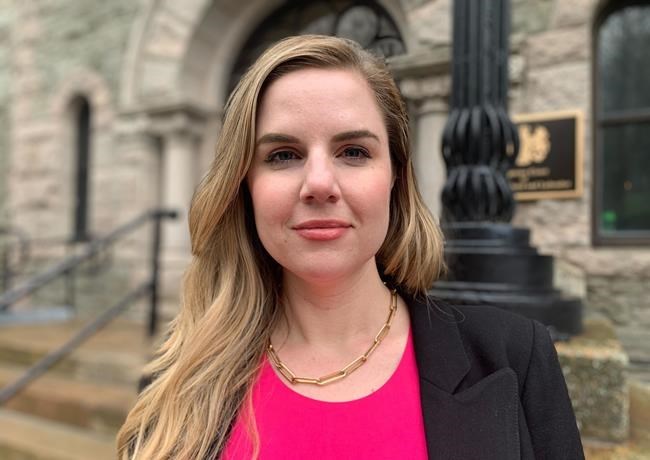MONTREAL — A woman who filed a sexual harassment lawsuit against the Pierre Elliott Trudeau Foundation is appealing a Newfoundland and Labrador court decision that would have the case moved to Quebec.
Cherry Smiley alleges she was sexually harassed by former Northwest Territories premier Stephen Kakfwi during a 2018 event organized by the Trudeau Foundation, which had paired her with Kakfwi through a mentorship program.
Kathryn Marshall, Smiley's lawyer, says she filed the appeal Thursday on the grounds that a Newfoundland and Labrador Supreme Court judge erred when he ruled last month that he didn't have jurisdiction and that the case should be heard in Quebec.
"We think the court in this case really discounted the fact that the plaintiff is a vulnerable survivor of sexual trauma," Marshall said in an interview Thursday. "To have to recommence her litigation, her lawsuit, in another province after years of delay, is an extreme barrier to access to justice."
Smiley, who currently lives in Vancouver, originally filed a suit in British Columbia in 2021 but withdrew it after lawyers for the Quebec-based foundation opposed that jurisdiction. She then filed the case in Newfoundland and Labrador, where she alleges the harassment took place.
Marshall said her client would face linguistic and financial barriers if she's forced to pursue her case in Quebec, which has a different civil justice system than the rest of the country.
She said it is rare for someone alleging sexual abuse to have the courage to sue "a powerful institution" like the foundation. "But then to be told by the court, 'You can't proceed in our province, despite the fact that the trauma you experienced happened here, you need to go somewhere else,' it's like having a door slammed in your face," Marshall said.
The lawsuit names Kakfwi and the Trudeau Foundation as defendants. It says that during a three-day foundation event in St. John's, N.L., Kakfwi twice pulled Smiley close to his body and "grabbed her upper arm near her breast." It says he then squeezed and massaged her arm "for an extended period." He also repeatedly invited her to his home in Yellowknife, once while holding her upper arm, according to the statement of claim.
In his July 19 ruling, Justice Peter Browne found that even though the events are alleged to have taken place in St. John's, Smiley and Kakfwi were required to be in Newfoundland and Labrador by agreements with the Trudeau Foundation that were governed by the laws of Quebec.
He also found that hearing the case outside Quebec, where most of the witnesses reside, would be a financial burden on the foundation.
The Trudeau Foundation said Thursday afternoon that it had not yet received notice of appeal and declined to comment, citing the fact that the case remains before the courts. "Our priority is to uphold the principles of due process and maintain the integrity of the judicial system," foundation spokesman Alex-Khang Tran wrote in an email.
Kakfwi has filed a statement of defence to Smiley's lawsuit, denying that he had any contact with her that "could be construed as being sexual in nature." A lawyer for Kakfwi argued in favour of having the case heard in Newfoundland and Labrador during the June hearing. His lawyer said Thursday he had not yet seen the appeal and could not comment.
This report by The Canadian Press was first published Aug. 3, 2023.
Jacob Serebrin, The Canadian Press



